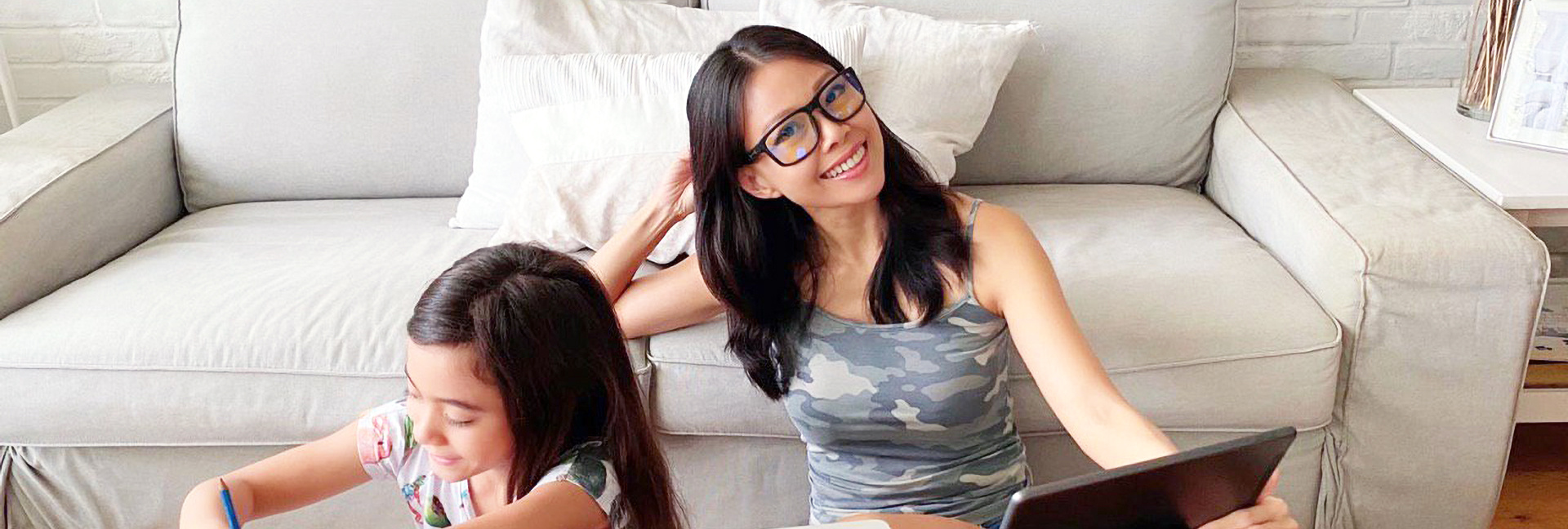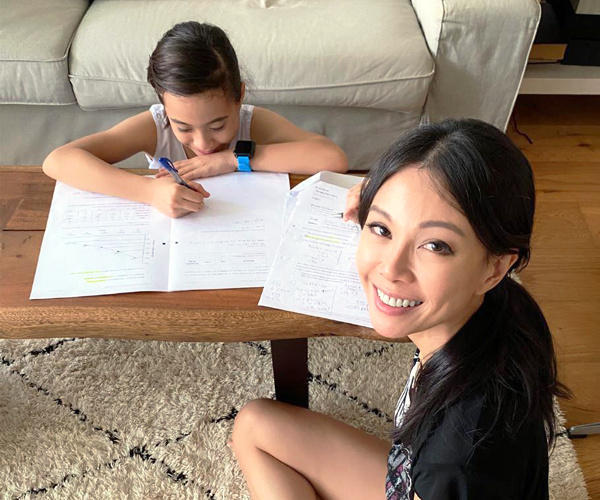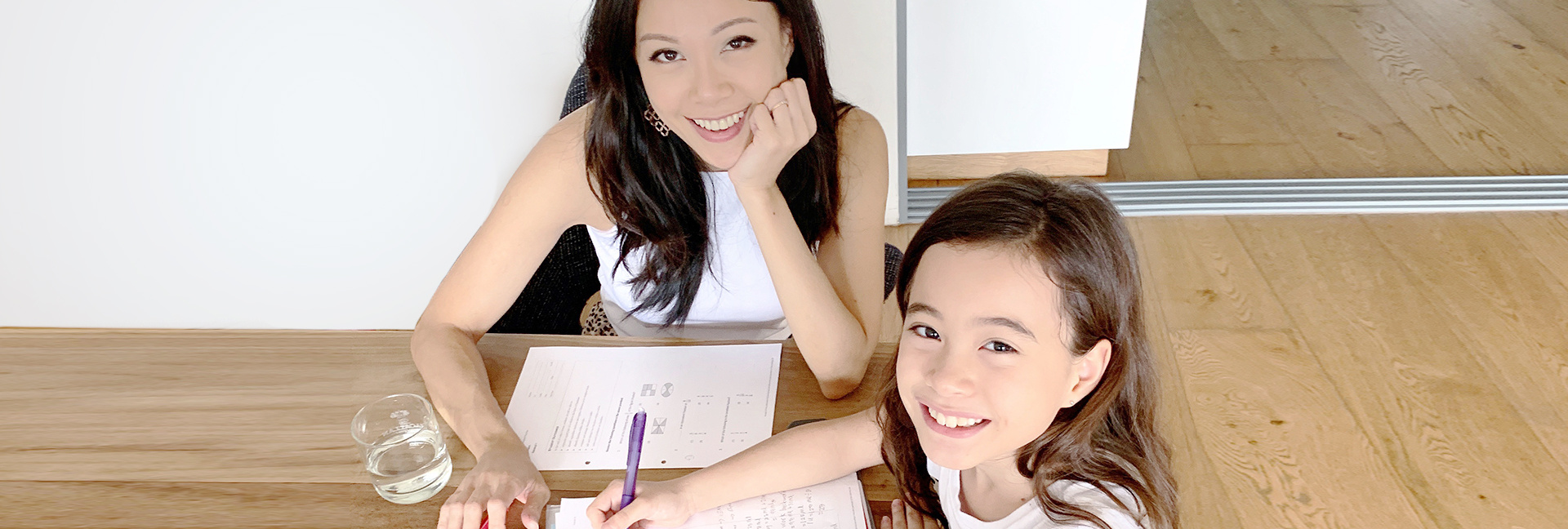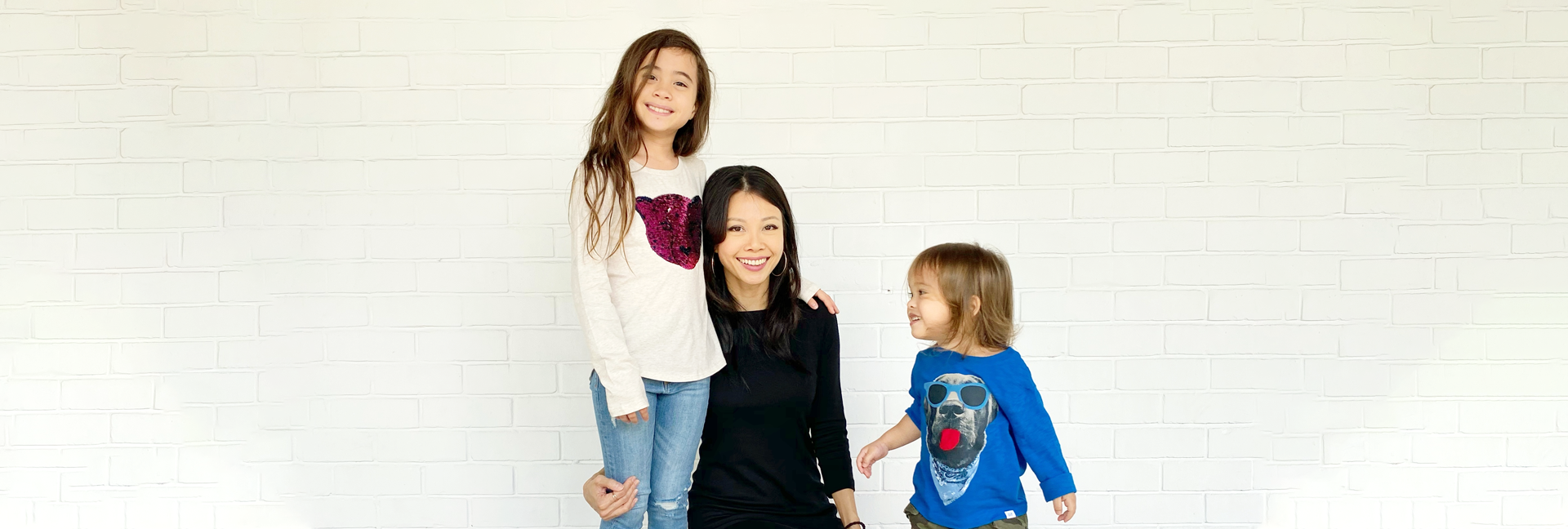
Beneath all the glitz and glamour and away from the media spotlight, former radio deejay and actress Jamie Yeo is just like any other devoted mother when it comes to raising her two children: she wants to see them do well in whatever they do, and prepare them for any curveballs that life might throw their way.

The Learning Lab has always emphasised the importance of parental involvement in every child’s development.
When parents are actively engaged in their kids’ academic and personal lives, children have the home support and knowledge they need to not only develop a lifelong love of learning but also cultivate fundamental developmental skills and values.
But unless you happen to be living side-by-side with another family, parents usually have no reference point for what active involvement might look like for other parents.
This is why we got Jamie to shed some light on what she does to stay involved in her ten-year-old daughter Aly’s life — both in school and at home — as a hands-on mum. Without further ado, here are Jamie’s 5 items:

1. Managing My Child’s Schedule
Aly is beginning to assert her independence more and more, and this is something we encourage. One of the more simple steps is our decision, accelerated by the circuit breaker period, to make her take ownership of her schedule, including classes and homework.
It hasn’t all been plain sailing, but learning never is. At the same time, I do sit down with her once or twice a week to check-in, especially on the more challenging homework assignments (in her case: mathematics and Chinese). She’s now using a diary to plan her own timetable.

2. Getting Into Nature to Bond
We take regular walks out in the nearby park because i think it's so important for our kids to "absorb" greenery, enjoy the fresh air and be with nature.
During these walks, we talk about anything Aly wants to talk about. Sometimes, the conversation would steer towards her friends at school, which is great because it gives me great insight into her school life.
Sometimes she would tell me facts that she picked up from her TLL Science lessons about the different plants and animals that we come across on our walks, which shows her ability to apply the knowledge she acquired to the real world and takes learning beyond the classroom.

3. Screen Time Isn't All Bad
We make an effort to take an interest in the show that is Aly’s favourite at the moment because it means a lot to her and makes her happy. A happy child makes more effort with their schoolwork!
For example, she loves it when daddy and I sit down with her to watch Ninjago (an animated series revolving around Lego ninjas) with her. She gets so excited telling us about the different characters. I’m still mostly clueless, but knowing how to distinguish Kai as the red ninja of fire, has surprising mother-daughter currency!
Screen time is a reward however. It comes after work and chores, such as watering the plants, tidying up her room and laying the table. I do occasionally give her screen time at meals when the iPad allows me to savour food (my passion!) without either of the terrors vying for attention, or worse, my food!

4. Conducting Spot Checks
Spot checks are habitual for Aly now. She and her classmates have them in school for everything from appearance to behaviours. Some spot checks we schedule with her.
For example, we started the Sunday evening room inspection after she turned her room into a “biohazard zone” during the circuit breaker period.
Other spot checks are intentionally kept unpredictable, especially when it comes to studying for Chinese and Maths. Spot checks can really help to motivate her to focus on continuous learning, and not just memorising (and then forgetting) for a test. If she does well in these checks she’ll get a reward, like screen time, or if she’s done really well, ice-cream (which I’ll join in on, for solidarity reasons only, of course).

5. Give 'Em a Break!
Let's face it. The education system in Singapore is gruelling. My heart really goes out to our kids. The standard here is so high. I don't know half the Chinese characters in Aly’s Primary 4 ‘ting xie’ (spelling) list! Half the time, when I'm marking her Science assessment books, I have to refer to the answer list!
As for Maths, I can work out the problems but I can't show the workings or explain the process to her well enough so I leave it to her teacher at The Learning Lab.
Some days, I feel sorry that she already gets tutored in two subjects so I don't make her study or do anything academic when she doesn't want to. Our kids need time to just play! So we let her :)

Helping to Raise All-Rounder Students for Success
Active involvement in your child’s life, like most other things worth pursuing, is about finding a balance.
As Jamie has shown, active involvement doesn’t necessarily involve breathing down your child’s neck all the time. Instead, as children get older, parents will find that it’s more important and beneficial to give them the space to make their own decisions.
In other words, you can build for them a system in which they can succeed, but then leave them to succeed on their own.
At The Learning Lab, we believe in helping our students develop as holistic individuals. This means not only honing their academic skills, but also cultivating good habits and helping them become more independent by giving them the freedom to express themselves in class through projects or assignments. Click here to find out more about how we nurture both our students' academic and personal growth.
Even a small thing like getting them to file their worksheets can help children to be more responsible and take ownership of their work and learning.
More Tips from Jamie Yeo:
Jamie shares her five top tips on P3 preparation in hopes that other parents will find it valuable and applicable to their own children and home dynamic. We have further supplemented her tips with some ways that you can adapt her advice for your child.
Discover Jamie's tips and tricks on how she is able to strike a balance between her hectic job schedule, letting her daughter, Alysia, unwind over the school holidays while ensuring that that she continues learning in various ways in the process.
The Learning Lab is now at locations. Find a location that suits your needs.
If you have any questions about our range of programmes or class schedules, you may contact us at 6733 8711 or drop us an email at enquiry@thelearninglab.com.sg.
The Learning Lab is now at locations. Find a location that suits your needs.
If you have any questions about our programmes, please email us at enquiry@thelearninglab.com.sg or call us at 6733 8711 and we will be happy to assist you.





